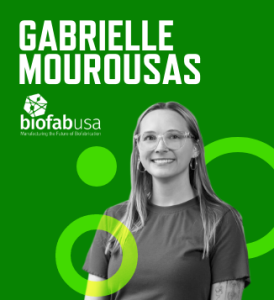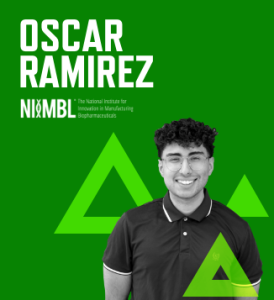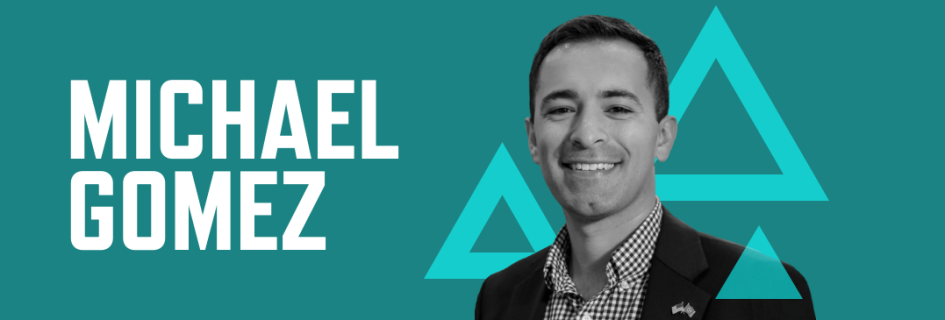
Rising star, cutting tool innovator, aspiring cook
Michael Gomez is a rising star in the manufacturing tool industry. The manufacturing of tools is a vital industry that provides the essential equipment and technology used by companies and manufacturers to create products across a wide range of industries. The manufacturing of tools, known as Tooling, refers to machines used to shape and cut materials and the design of parts using computer-aided design (CAD) software.
Michael has an impressive resume. He was named to SME’s “30 under 30” list in 2023, has three degrees, has authored 19 journal publications, and helped establish a research entity for his company, MSC Industrial Supply Co., a leading distributor of maintenance, repair, and operations (MRO) products and services.
As Principal R&D Engineer at MSC, Michael leads the company’s Manufacturing Research & Technology team, which works with suppliers, customers, and academic institutions to develop and apply new technologies in the U.S. metalworking industry. Michael founded the MSC Machining Research Laboratory, which is hosted at the University of Tennessee’s (UT) Machine Tool Research Center and was involved in developing the revolutionary MSC’s MillMax, which improves material removal rate by about 300 percent and reduces cycle times by about 50 percent. This saves MSC manufacturing customers an incredible amount of time and money and makes them more productive.
Michael has two degrees from the University of North Carolina - Charlotte – a Bachelor’s degree in physics and mechanical engineering and a Master’s in mechanical engineering and engineering science. He also earned a Ph.D. in mechanical engineering from the University of Tennessee. Michael made many connections during his time at the university in Knoxville. He was a visiting researcher at UT, was an R&D assistant staff member at the nearby Oak Ridge National Laboratory, and for the past two years he has worked with America’s Cutting Edge (ACE) training program led by IACMI - The Composites Institute, which also is based in Knoxville.
Michael embodies the spirit and determination of a Modern Maker with his impressive credentials and track record of advanced manufacturing innovation.
Q&A with Michael
How did you find your way to working in advanced manufacturing?
I consider myself a late bloomer. My path into advanced manufacturing began in my senior year of my undergraduate program when I was uncertain about my career direction. At the time, advanced manufacturing was an abstract field to me, and it wasn’t clear to me what types of careers were available. I had several professors encourage me to pursue graduate studies. During my first summer in graduate school, I fell in love with research, realizing that combining my research interests with advanced manufacturing was a perfect fit for me.
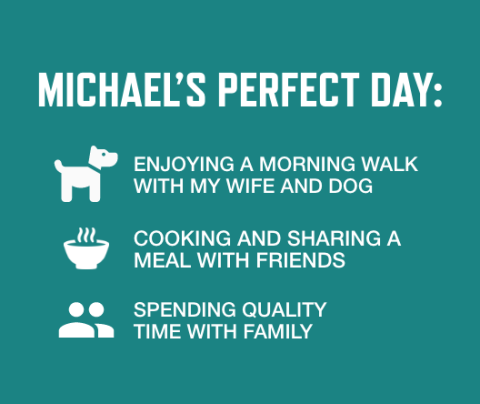

What is the most challenging part of your job?
The most challenging part of my job is keeping up with the rapid development of new research areas and technologies that support manufacturing. The industry is constantly evolving, and it can be difficult to identify which innovations will have the most impact on manufacturing customers. Prioritizing and implementing the right development path can be difficult, but I enjoy the process of problem-solving and strategic planning.
What is the best part of your job?
The best part of my job is teaching others. I find that explaining complex concepts to others helps me deepen my own understanding. Teaching requires me to break down topics into fundamental principles and address basic questions, which reinforces my knowledge and helps others grasp the material.
What would people be surprised to learn about manufacturing or your role in it?
Many people would be surprised to learn that manufacturing encompasses far more than just making things. One of the most rewarding aspects of my work has been participating in education, outreach, and training efforts. These initiatives have allowed me to directly influence and support individuals in their professional journeys. My role in manufacturing is as much about empowering people and driving innovation as it is about production.
What advice do you have for someone new to the industry?
I recommend seeking out mentors who can provide guidance and support as you begin your career. Mentors can offer valuable insights, share their experiences, and help you make informed decisions by offering the perspective gained through many years of experience. I have benefited greatly from having several mentors who helped me navigate challenges and opportunities when it came to career decisions or how to tackle new problems. Having a network of mentors can be a great way to build relationships that help both personal and professional development.
What makes you excited to go to work?
I am excited to go to work each day because of the constant opportunities for learning and problem-solving. The ability to contribute to the advancement of the manufacturing industry keeps me motivated to mentor, coach, and develop the next generation of industry leaders.
If you didn’t have to work, how would you spend your day?
A guilty pleasure of mine is playing video games with friends. If I didn’t have to work, I think I would spend a lot of my time picking up new games to play. As much as I love learning, there’s nothing better than jumping into a new story through an RPG or a multiplayer game.
What activity gives you the most energy?
Diving into new, complex problems energizes me the most. I find excitement in unraveling the "how" and "why" of challenging situations, which fuels my problem-solving drive. There is something exciting about approaching a novel problem.
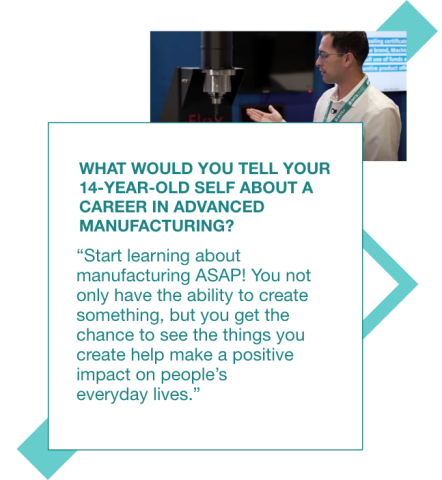
What hobbies make you better at your career?
I enjoy picking up new hobbies and activities and becoming fully absorbed in learning as much as possible about each one. I’ve found that learning something new, especially outside of my field, influences how I approach challenges in my career and daily life. This process of continuous learning brings creativity into my professional life. Lately, cooking has become my hobby of choice, and I love learning about the science of what makes food taste great.
How does the work you do impact the world?
In my career, I’ve developed new technologies like low-cost cutting force dynamometers, promoted and deployed technology such as modal tap testing to improve productivity, and supported the manufacturing industry through workforce development programs like America’s Cutting Edge and Manufacturing Day. The work I do helps advance manufacturing capabilities, leading to greater efficiency and productivity, which ultimately contributes to the growth and development of a skilled workforce.


